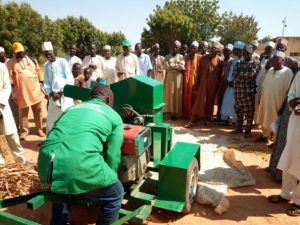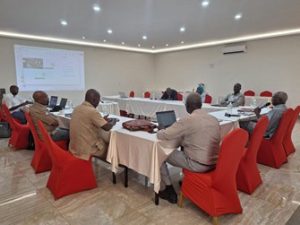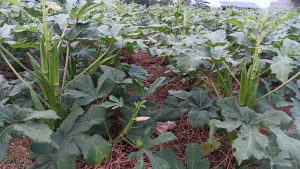Crop Residue Trader and Increase in Farmer’s Income and Investments
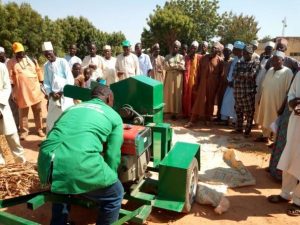
Crop Residues (CRs) from coarse cereals such as sorghum and pearl millet grown on the cropland as food and feed are immensely important to livestock feeding. However, animals selectively eat leafy parts of these two crops leaving thick stems in abundance and yet not utilized properly which poses challenge in feeding during the dry season.
Often, CRs are burnt which does not only cause air pollution but also a loss of biomass that could be brought back to the soil either by incorporating it in the field or through manure. In urban areas men and women farmers practice a simple method of manually cutting stovers into small pieces which is laborious and time consuming.
While there is availability of cultivars of sorghum and pearl millet for green forage that are juicy, an absence of feed transformation technology constrains urban and peri-urban livestock keeping and increases the costs of feeds.
Thus to address the key challenges in feed cost, quantity, quality and seasonality and inefficient utilisation of crop-residues (CRs), and stop stubble burning, a simple method of mechanised chopping technology is introduced in the form of mobile chopper which can cut green and coarse dry stovers into small pieces leading to efficient and optimum utilisation of crop residues. ICRISAT started this work in collaboration with ILRI few years ago under the USAID funded project Africa ARISING project in Mali.
ICRISAT Nigeria under the TAAT project reached out to over 94 crop-livestock farmers and crop residue marketers in Kano and Jigawa states of Nigeria through a solution based technology demonstration.
This was done during the field days jointly organized by ICRISAT Kano and IAR/ABU Zaria under the Bill and Melinda Gates Foundation (BMGF) funded project “Harnessing Opportunities for Productivity Enhancement” (HOPE II) and TAAT projects. The field days were conducted in Bichi and Ungogo Local Government Areas (Kano State) and Garki Local Government Areas (Jigawa State).
This opportunity was used by the Sorghum/Millet Nigeria TAAT in collaboration with HOPE project to conduct training on stover crusher.
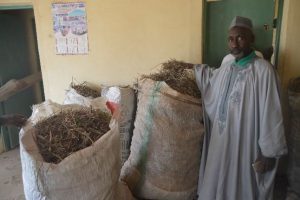
Many farmers showed interest in adopting and acquiring the machine for their use and as service providers within their communities. One of the beneficiaries of the trainings, Mr Sarki Ado NaUwani of Bichi was linked to the Fabricator in Kano and a service provider who can crush his stover for him for a fee. The cost of a stover chopper is about USD 1000, so Mr Sarki Ado is using the service provider.
According to him “crushing the stover increases the price and utilisation of the residues by livestock. The livestock keeper understand this, so they are willing to pay more for crushed residues. The crushed residues are also easier to transport and store as they consume less space and can be stored indoors. My profit has risen by at least 20%. I am saving money to buy my own crusher, I have also increased my livestock number“. A 6 kg bag of crushed sorghum stalk sells for N600-1000 (USD2-3) while a bag of crushed legume residue sells for N1500-2500 (USD5-3) depending on the quality. Equivalent weight of unthreshed sorghum stalk sells for N200-300 (USD 0.6 to 1). According to Mr Sarki Ado, it is a win-win situation for the marketers, the livestock keepers and emerging service providers. The marketers increase his profits, the livestock keepers increase utilisation of crop residues and livestock productivities, while the service provider gets employment.
Sorghum and Millet Compact at the Office of minister of Agric North Darfur, Sudan
Recent Stories
Related Stories
- Reducing COVID-19 Impact on Agriculture: TAAT and Partners Support Nigerian Farmers with improved seeds
- TAAT: Driving Africa towards water-secure wheat production
- The Sorghum-Millet Compact’s Technology Toolkits
- SOMALIA: TAAT holds Capacity Building Programme for Women and Youth
- Growing water-efficient and climate-smart maize has changed my life – Kenyan farmer


